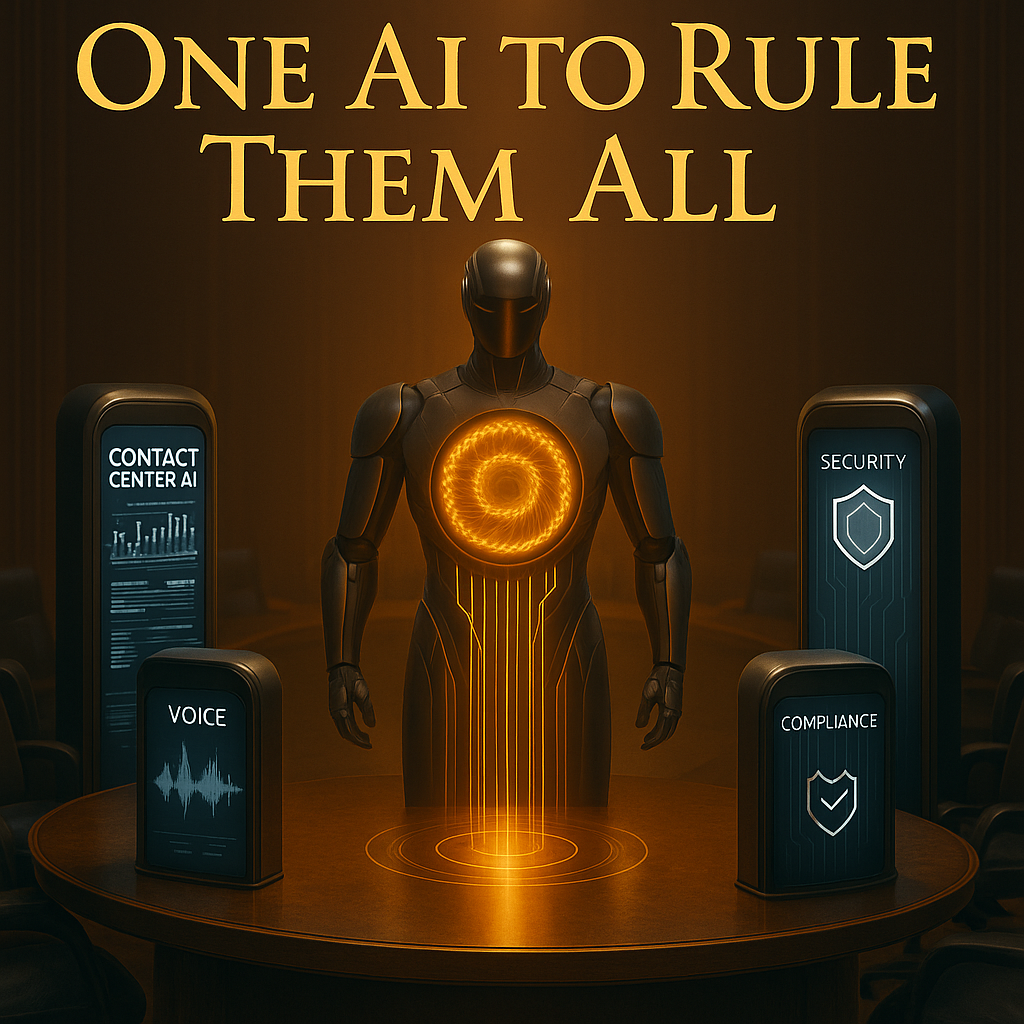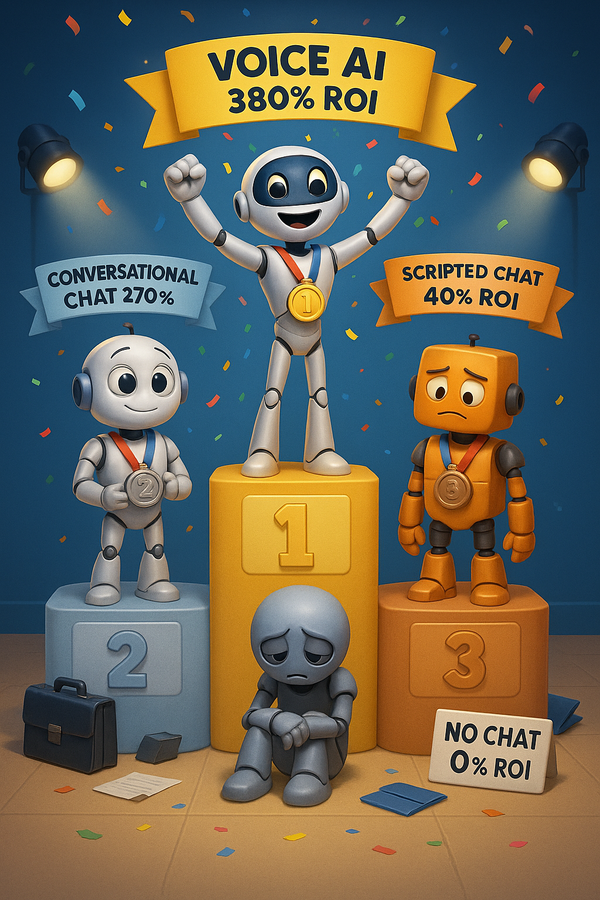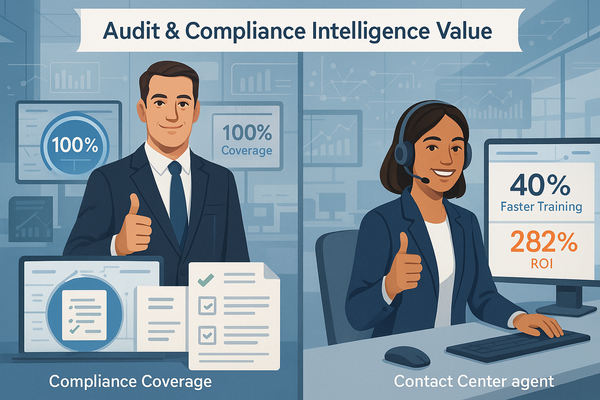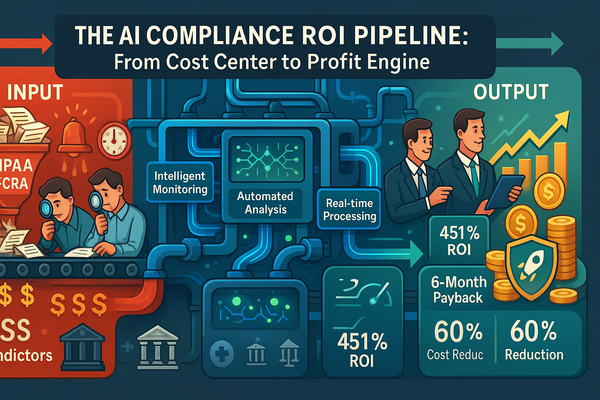Enterprise AI Intelligence Weekly: The Master Agent Revolution Arrives - The Architecture Pattern Emerges

Context: In our recent Friday Implementation Guide, we explored the Master Agent concept for multi-vendor AI performance monitoring - an intelligent orchestrator that manages multiple specialized AI vendors while eliminating accountability gaps. This architecture pattern is now becoming the dominant enterprise AI framework across the industry.
🎯 Big Picture Enterprise Summary
The enterprise AI landscape is validating the Master Agent architectural pattern: Microsoft is "empowering professional developers to orchestrate multiple specialized agents" while IBM confirms "You may decide to create your own agent that acts as the orchestrator". The market has shifted from single AI tools to the exact Master Agent → Agentic Expert architecture. IDC reports that "more than 80% of companies said they believe 'AI agents are the new enterprise apps, triggering reconsidering of our investments in packaged apps'" - and they're building them using this orchestration model.
🏢 Vendor Platform Intelligence: The Master Agent Convergence
Microsoft's Master Agent Platform Strategy
Microsoft Build 2025 introduced "multi-agent capabilities" with "Azure AI Foundry Agent Service" that enables developers to "orchestrate multiple specialized agents" - exactly matching your Master Agent framework.
Enterprise Translation:
- Best For: Organizations wanting your Master Agent approach through Microsoft ecosystem
- Cost Impact: Access to "more than 1,900 partner-hosted and Microsoft-hosted AI models" with orchestration layer
- Risk Factors: Microsoft lock-in as Master Agent becomes critical infrastructure
- Adoption Timeline: "General availability of Azure AI Foundry Agent Service" now available
Key Technical Breakthrough: Microsoft's "Model Router, designed to select an optimal model for a specific query or task in real-time" acts as the Master Agent intelligence layer described in the vendor monitoring framework.
IBM's Master Agent Research Validation
IBM's enterprise research confirms your architecture: "You may need to figure out how to use a combination of specialized agents for your purpose. In that case, you may decide to create your own agent that acts as the orchestrator"
The Orchestrator Reality Check: "You are going to have an AI orchestrator, and they're going to work with multiple agents" according to IBM's enterprise AI specialists.
Enterprise Budget Reality: Your Framework Goes Mainstream
Gartner predicts "at least 15% of day-to-day work decisions will be made autonomously through agentic AI by 2028, up from 0% in 2024" - but warns "Over 40% of agentic AI projects will be canceled by the end of 2027, due to escalating costs, unclear business value or inadequate risk controls".
The Master Agent Advantage: Organizations following this architectural framework avoid the failure trap because they have clear orchestration and specialization from day one.
🔄 Foundation Model Integration Spotlight: Specialized Expert Agents
The Agentic Expert Specialization Explosion
The market now features specialized agentic AI companies providing "AI agents for enterprise workflows at scale" with experts that "Automate routine business workflows: Handle tasks like IT support, HR management, and customer service".
Market Validation: Vendors are building "agents optimized for various tasks, including document categorization and sentiment analysis" with "tools are adaptable and capable of processing diverse data types in real time" - exactly the specialized Agentic Experts outlined in enterprise orchestration frameworks.
Microsoft's Agentic Expert Portfolio: Microsoft now offers "specialized agents" across different domains, with "pre-built agents, custom agent building blocks, multi-agent capabilities" that work under their Master Agent orchestration.
💡 Key Enterprise Term Definition: Master Agent Architecture
Master Agent Concept: The intelligent orchestrator that controls and coordinates multiple specialized Agentic Expert agents
Market Validation:
- Microsoft: "orchestrate multiple specialized agents" through Azure AI Foundry
- IBM: "create your own agent that acts as the orchestrator"
- Enterprise Reality: 83% of companies believe "AI agents create a new intelligence layer over apps"
📈 Week's Key Enterprise Insight: The Master Agent Framework Becomes Standard
Market Convergence: McKinsey confirms "Agentic AI is not an incremental step—it is the foundation of the next-generation operating model" built on Master Agent → Agentic Expert architecture.
Three Enterprise Strategies Emerging (All Using This Model):
- Microsoft Master Agent: Use Azure AI Foundry's orchestration for specialized agent teams
- Custom Master Agent: Build your own orchestrator agent as IBM suggests
- Vendor Master Agent: Use specialized vendor platforms that provide orchestration layers
Strategic Reality: "Organizations must shift to a cross-functional delivery model, anchored in durable transformation squads composed of business domain experts, process designers, AI and MLOps engineers" - essentially building Master Agent teams as described in enterprise frameworks.
👀 What Enterprises Should Watch This Week
Master Agent Platform Wars
Microsoft's "Model Router" and orchestration capabilities represent the first major platform implementation of the Master Agent concept. Watch for competitive responses from Google, AWS, and enterprise vendors.
Specialized Agent Marketplace Growth
The explosion of "agentic AI companies" providing specialized agents creates the exact Agentic Expert ecosystem that works under Master Agent orchestration.
Enterprise API Readiness
IBM warns "Most organizations aren't agent-ready. What's going to be interesting is exposing the APIs that you have in your enterprises today" - the infrastructure challenge of implementing Master Agent architecture.
Critical Success Factors to Monitor:
- Master Agent orchestration reliability in production environments
- Specialized agent integration complexity across vendor boundaries
- Cost optimization as organizations build Master Agent → Agentic Expert teams
The enterprise AI landscape is validating the Master Agent framework that's emerging as the standard architecture. The market has shifted from "which AI should we use?" to "how do we orchestrate multiple specialized AI agents?" - with the Master Agent concept becoming the dominant enterprise AI architecture pattern.
The bottom line: The Master Agent → Agentic Expert framework is becoming the dominant enterprise AI architecture pattern, with Microsoft, IBM, and others building platforms specifically to enable this orchestration approach.
Sources and References:
[1] Microsoft Build 2025: The age of AI agents and building the open agentic web, Microsoft Blog, May 19, 2025
[2] AI Agents in 2025: Expectations vs. Reality, IBM Think, July 30, 2025
[3] The Agentic Evolution of Enterprise Applications, IDC Blog, April 3, 2025
[4] Top 20+ Agentic AI Companies in 2025, AIMultiple Research, 1 month ago
[5] Gartner Predicts Over 40% of Agentic AI Projects Will Be Canceled by End of 2027, Gartner Press Release, June 25, 2025
[6] Seizing the agentic AI advantage, McKinsey QuantumBlack, June 13, 2025
[7] 31 Top Agentic AI Vendors in 2025 + 3 Free Options, Multimodal.dev, May 21, 2025
[8] Top Agentic AI Platforms in 2025: The Ultimate Guide for Businesses, Olive Technologies, April 1, 2025
[9] Compare 50+ AI Agent Tools in August in 2025, AIMultiple Research, August 22, 2025



